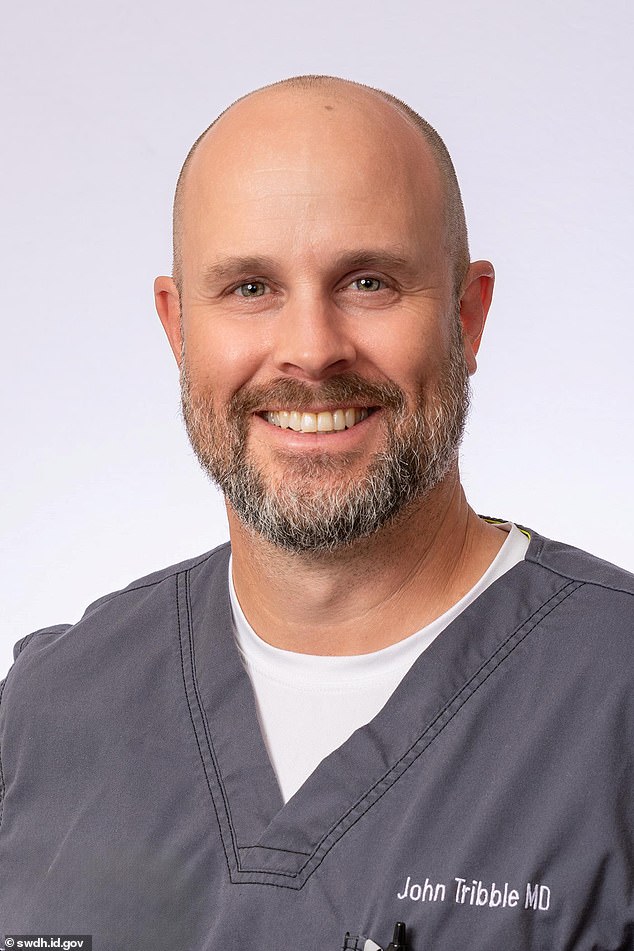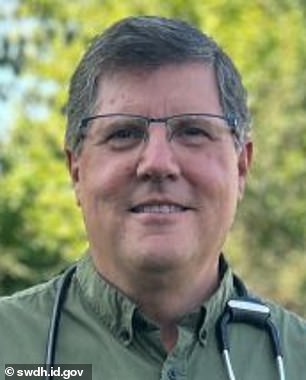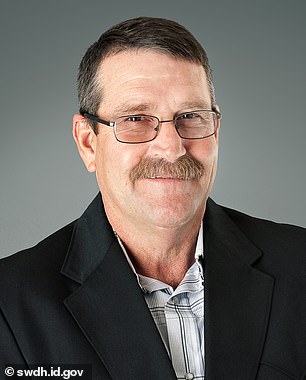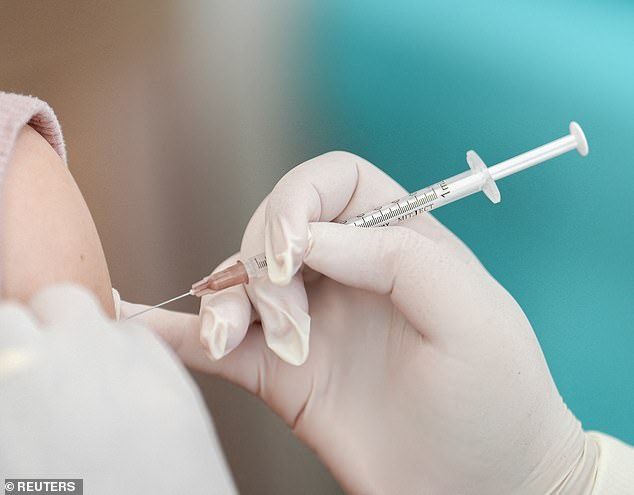Six Idaho counties will no longer offer the COVID-19 vaccine after a regional health department board banned it.
In a 4-3 decision, the Southwest Health District, which covers several counties, including three in the Boise metropolitan area, decided to ban the controversial vaccine, despite concerns from state health officials.
The board made the decision after seeing presentations from several doctors who have been accused of spreading conspiracy theories, including Dr. Peter McCollough, a cardiologist whose license was threatened by the American Board of Internal Medicine in 2022.
They also heard from Idaho pathologist Dr. Ryan Cole; Dr. Renata Moon, who questioned vaccines before the Senate; and Dr. James Thorp, who appeared in the documentary Died Suddenly, which has since been debunked, according to Boise State Public Radio.
They were invited to speak by the board’s only physician, Dr. John Tribble.
The board also received more than 290 public comments, many of which called for an end to vaccine mandates or taxpayer funding of vaccines, neither of which are happening in the district.
In a 4-3 decision, the Southwest Health District, which covers several counties, including three in the Boise metropolitan area, decided to ban the controversial vaccine, despite concerns from state health officials.

The board made the decision after seeing presentations from several doctors who have been accused of spreading conspiracy theories, including Dr. Peter McCollough, a cardiologist whose license was threatened. Speakers were invited by Dr John Tribble (pictured)
Dr. Perry Jansen, who works in the district, defended the vaccine and its safety, saying, “Our request to the board is that we be able to transport and offer those (vaccines), recognizing that we always have these discussions about risks and benefits.
‘This is not a blind approach where everyone has a chance. This is a thoughtful approach.”
Board President Kelly Aberasturi also expressed disappointment with the decision but said he supported them.
He said the board had overstretched the relationship between patients and their doctors and possibly opened the door to blocking other vaccines or treatments.
‘So you’re telling me now that I have the right to overrule that doctor?’ Because I know more than him? he said, according to Boise State Public Radio.
‘It has to do with the individual’s right to make that decision alone. It is not my place to dictate to them what they will do. I’m sorry, but this pisses me off.’
Board member Jennifer Riebe agreed with Aberasturi’s concerns that it won’t be limited to just the COVID-19 vaccine and could depend on the board making decisions about each vaccine.
“I’m not comfortable with that,” she said, according to Boise State Public Radio. “Maybe now it’s COVID, maybe we’ll go down the same path with the measles vaccine or coverage of the shingles vaccine.”
Board members who favored the decision argued that people can get vaccinated elsewhere and that providing the vaccines was tantamount to ensuring their safety.
Some may be reluctant to get vaccinated or get a booster because of misinformation about the shots, despite evidence that they are safe and have saved millions of lives.


Dr. Perry Jansen (left), who works in the district, defended the vaccine and its safety. And board president Kelly Aberasturi (right) also expressed disappointment with the decision. He said the board had overstepped the relationship between patients and their doctors.
However, people who got vaccinated at the health department — including people who are homeless, homebound, and those in long-term care facilities or in the immigration process — had no other options. said Jansen and Aberasturi.
“I’ve been homeless throughout my life, so I understand how difficult it can be when you’re trying to get by and get by,” Aberasturi told the AP. ‘This is where we should step in and help.
“But we have some board members who have never been there, so they don’t understand what it’s like.”
State health officials have said they “recommend that people consider the COVID-19 vaccine.”
Idaho Department of Health spokesman AJ McWhorter declined to comment to the AP about “public health district matters” but noted that COVID-19 vaccines are still available at community health centers for people who don’t have insurance.
Aberasturi said he plans to ask at the next board meeting if the health department can at least be allowed to vaccinate older patients and residents of long-term care facilities.

State health officials have said they “recommend that people consider the COVID-19 vaccine.” Vaccines will continue to be available at community health centers for the uninsured.
According to him, the board must ensure the “health and well-being” of the district’s residents.
“I think the way we approached this is we didn’t do due diligence,” he told the AP.
Aberasturi said he plans to ask at the next board meeting if the health department can at least be allowed to vaccinate older patients and residents of long-term care facilities.
According to him, the board must ensure the “health and well-being” of the district’s residents.
“I think the way we approached this is we didn’t do due diligence,” he told the AP.


